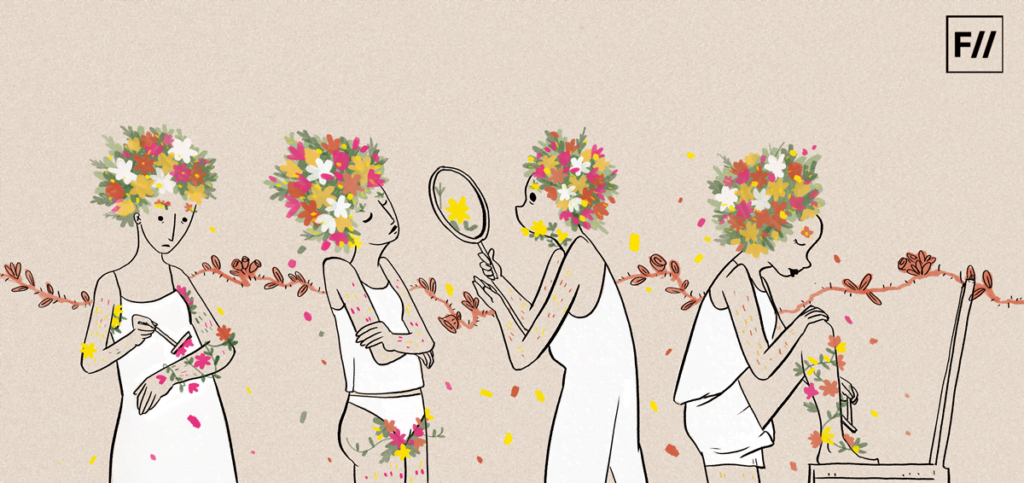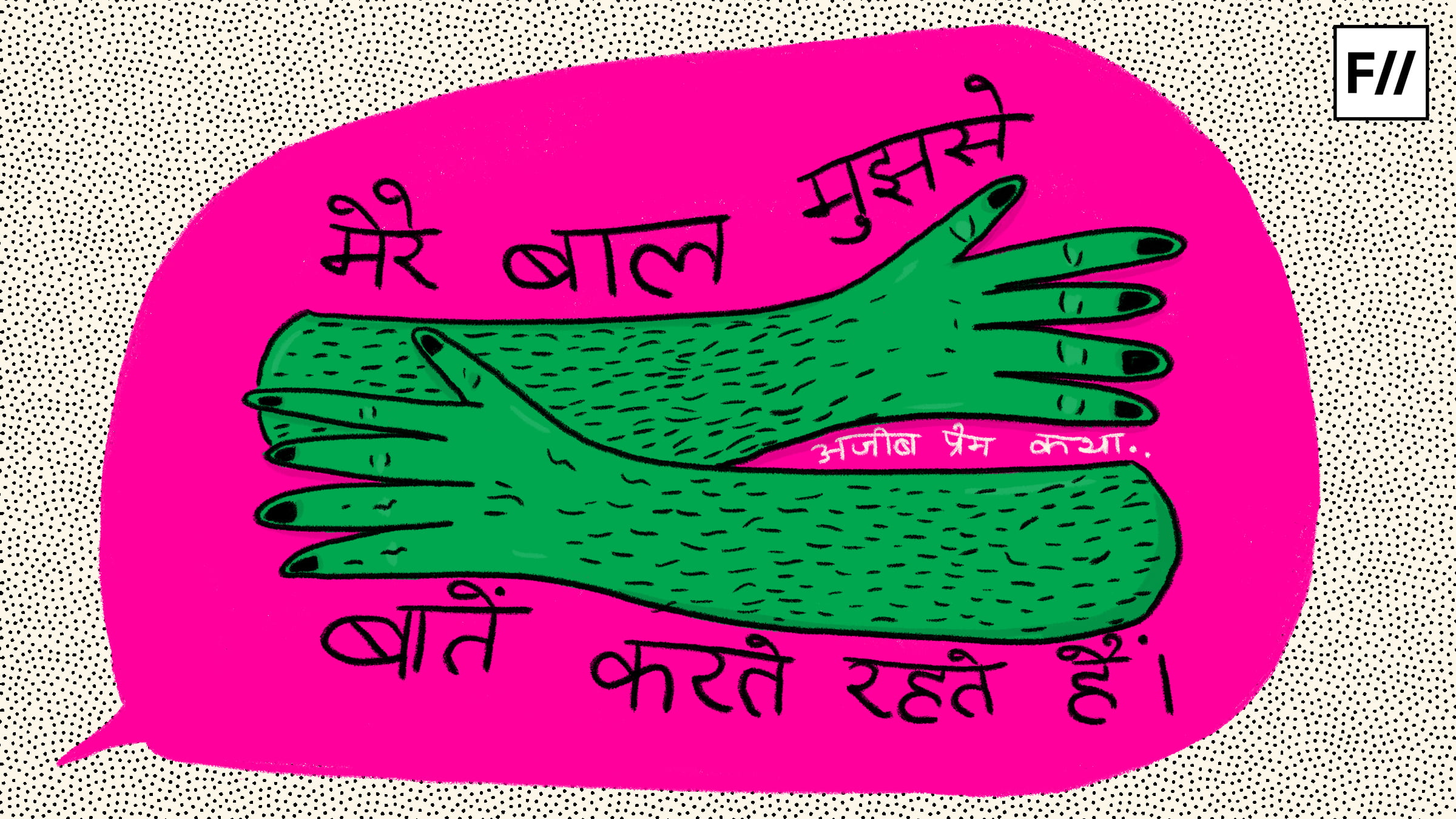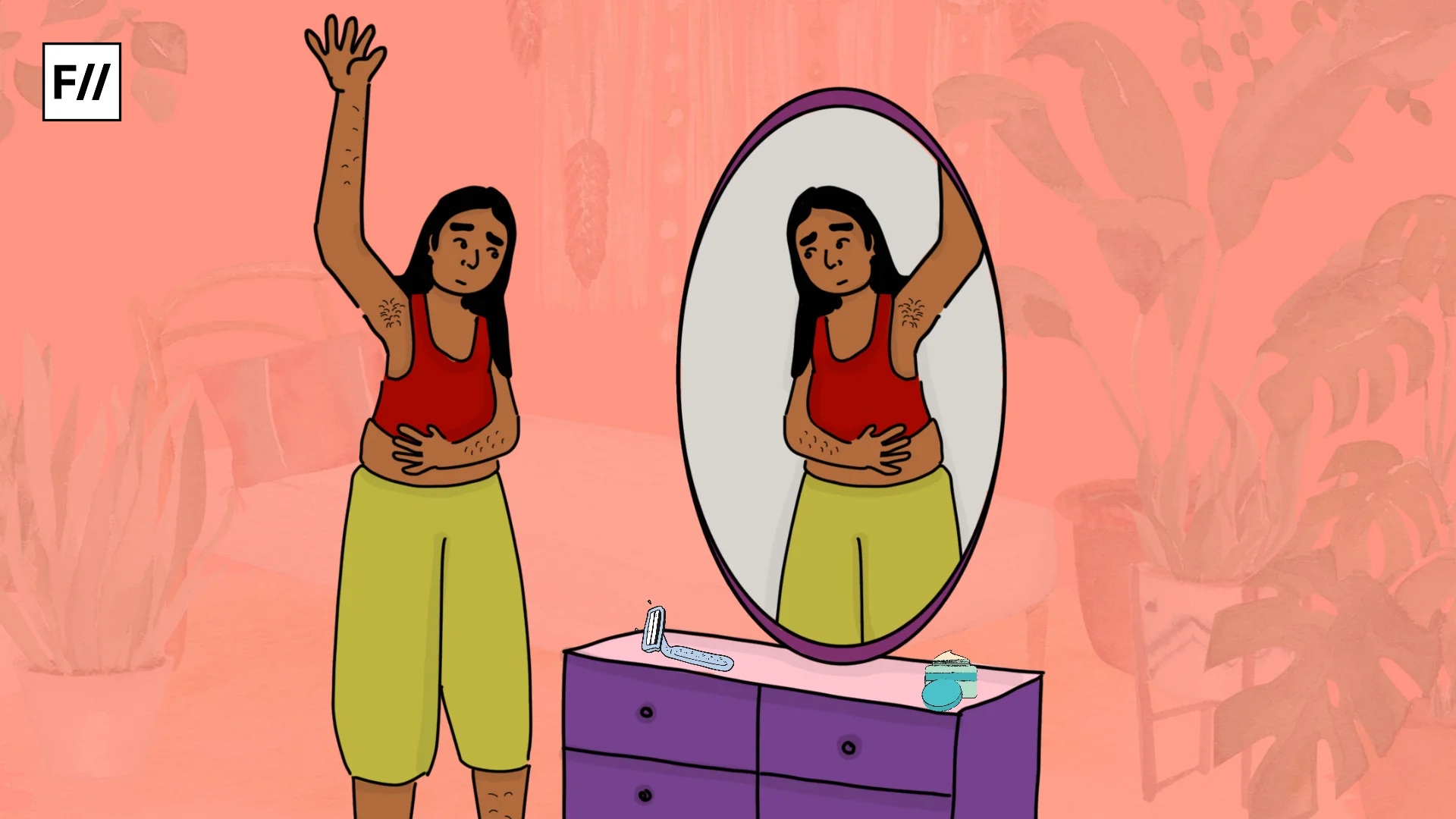It was a cool, Saturday afternoon. I was in the parlour enjoying a relaxing spa day when the attendant suddenly asked me if I wanted to wax my body. I sighed and told her that I had no intention of doing so. I had always been good at ignoring this kind of question, but this time I just couldn’t let it slide. The more I tried to shake off the encounter, the more it became imprinted in my mind – the smile on the attendant’s face as her gentle hands massaged my scalp, the maternal tone in her voice as she made the suggestion.
I remember the look she had given me when I had refused her offer; she had swept a pitying glance all over my hairy arms and legs, and when she thought I was looking away, she had shaken her head in disapproval. For a moment there, I considered trying to soften the blow by telling her that I was scared because the procedure looked too painful to my apprehensive eyes. But I didn’t because I was tired of getting strong-armed into compliance.
I remember when I was 14, I came back from school one day and asked my mother to get me some hair removal cream. As a teenage girl who had very few friends, I desperately wanted to “fit in” with the girls in my class and thought that ridding myself of my “disgusting” body hair would make me a part of their friend circle. I remember touching my legs afterwards, marvelling at the silky smooth skin of my body, but at the same time feeling a strange sense of vulnerability. For a very brief moment, I felt as if I was having an out-of-body experience. I remember being fascinated by this discovery. I remember feeling scared too.

At 17, I convinced myself into getting rid of the fine hairs on my upper lip. Most girls in college didn’t have them, and I certainly didn’t want to be called muchh wali by my classmates. Looking up at the ceiling and trying hard not to wince every time I felt the hairs being pulled out of the skin, I kept trying to tell myself that this was merely a rite of passage, that it was normal. But I am older now, and wiser for it. I know now that most of those girls had also succumbed to the same kind of pressure as I did – the pressure to “fit in” to the stereotypical image of a woman – soft, hairless, and feminine.
As a teenage girl who had very few friends, I desperately wanted to “fit in” with the girls in my class and thought that ridding myself of my “disgusting” body hair would make me a part of their friend circle. I remember touching my legs afterwards, marvelling at the silky smooth skin of my body, but at the same time feeling a strange sense of vulnerability. For a very brief moment, I felt as if I was having an out-of-body experience.
Also read: ‘Hey, You Have Gained So Much Weight!’
So, why is body hair considered a source of shame by so many young women?
There are a million different answers to that question but they all boil down to the same idea: women who have body hair are considered by society to be ugly, unattractive, and manly because our society is sustained by patriarchal norms. The female body has been the site of patriarchal oppression for thousands of years, with men constantly policing women’s sartorial choices, behaviour, and even grooming practices to control them. Women have been conditioned to believe that hairy bodies are unfeminine and unhygienic, and this belief has been reinforced through cultural practices and the rise of consumerism.
As a young woman from India where beauty is associated with fair and glowing skin, I know first-hand how cultural practices often compound patriarchal values, leading to women’s oppression. Girls learn quickly from their mothers, aunts, and older sisters to consider body hair “manly” and “disgusting”. And thus, the vicious cycle of body-shaming continues, fed continually by internalized misogyny and TV ads.
Having fair skin and dark hair colour makes my body hair more visible, often making me a target of unabashed stares and “well-meaning” suggestions. But, while I am simply subjected to rebukes for having body hair, others are treated in a far worse manner. Transgender women and women afflicted with hirsutism are often targeted on social media platforms. They are humiliated, degraded, abused; their bodies stripped of dignity and autonomy. This kind of cruelty reinforces their internalized sense of shame, making it harder for them to embrace their bodies or to talk about their experiences.

In the West, the counterculture movement of the 1960s and 1970s created a more body-positive attitude among young men and women, even as new hair removal products were launched in the market. Many second-wave feminists refused to conform to the prevalent standards of beauty by foregoing hair removal procedures. However, it did very little in the way of addressing the taboo nature of this topic. The culture of shame regarding body hair persisted well into the 1990s and 2000s, with celebrities like Julia Roberts and Madonna being criticized for baring their hairy armpits in the public.

Even today, there exists a double standard in society concerning notions of beauty. While male celebrities like Henry Cavill and Chris Hemsworth are deemed attractive for showing their chest and facial hair, female celebrities are shamed for doing the same. But things are changing. Gen Z celebrities like Cara Delevingne and Miley Cyrus are regularly seen with body hair. Brands are also catching up on the body positive movement. Recently Nike and No7 launched ads with models showing body hair (underarms and upper lip respectively).

However, sighting a woman in public with body hair is still rare, although norms are gradually changing. One campaign that is helping to normalize body hair on women, is Januhairy. Launched by students Laura Jackson and Ruby Jones in 2019, this initiative encourages women to grow their body hair for the month of January and share images of themselves online. In just over two years, the campaign hashtag has attracted thousands of posts from women across the world, including several from India.
Despite the increasing number of women calling for a more positive attitude to body hair, Indian cosmetic and beauty brands have still not taken any initiative to normalize body hair. While Indian celebrities like Malaika Arora have joined the bandwagon by showing off their body hair on social media platforms, the ground reality has not changed. My experience is proof of this.
Despite the increasing number of women calling for a more positive attitude to body hair, Indian cosmetic and beauty brands have still not taken any initiative to normalize body hair. While Indian celebrities like Malaika Arora have joined the bandwagon by showing off their body hair on social media platforms, the ground reality has not changed.
As I write this essay, my thoughts go out to the women in my life. The young mother who was shamed by her relatives for having body hair even though they knew she was busy with her newborn baby. The college girl who was bullied for having a muchh (hair on the upper lip). My darling mother who I wish had sat me down that day and told me that there was nothing wrong with my body but didn’t, because she didn’t know any better. And my teenage self who thought her body was so gross that she could not bring herself to look at it. I want to tell them all that body hair isn’t disgusting and unhygienic, and certainly not unfeminine. Their bodies are beautiful and precious and for them to do with as they please. I want to tell them that the next time they are told that they need to wax their bodies, they should first ask themselves – why should I hide who I am?
Also read: Surprise! Your Body Hair Is Hygienic
Having completed her Master’s in English and Comparative Literature, Shilpashree Mishra spends her days reading books, writing poems and binge-watching Netflix shows. As a scholar, she is extremely interested in how the fields of Masculinity Studies and Media Studies can contribute to issues of social justice in India. She is equally passionate about GoT fanfiction, dark academia mood boards, chocolate cakes, and everything Robert Pattinson.
Featured image source: Shreya Tingal/Feminism In India




